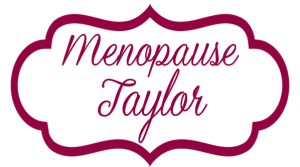Estrogen Dominance: Is It Good or Bad?
You know how the mere “sound” of a term can lead you to assume that it’s a good thing, and the mere sound of another can insinuate that it’s a bad thing? There are a lot of terms that imply positive or negative qualities simply by the way they sound.
Let’s see what you think.
Take the term “Estrogen Dominance.” Does it sound like a good thing or a bad thing? Is it something you want to achieve or something you want to avoid?
Which way do you lean when you hear that term?
Have you ever heard someone talk about Estrogen Dominance? Did he or she make it sound desirable or undesirable? After hearing it, did you learn more about it, or did you just assume you knew what it was and adopt their positive or negative attitude about it?
All too often, we hear a term, but don’t really know what it means. And, in the busyness of our lives, we miss the opportunity to learn what it really means. Yet, we act on it according to how it sounds.
So, let’s dissect the term “Estrogen Dominance,” and see what it’s all about.
Estrogen Dominance is what you have any time your estrogen level exceeds your progesterone level. In other words, it’s whenever estrogen is the dominant hormone of the two.
So, I ask you again, do you find Estrogen Dominance desirable or undesirable?
Hmmm.
I always go back to basics when I’m seeking the answer to a question. And, for purposes of Estrogen Dominance, “the basics” would be your menstrual cycle.
Back when you were having your menstrual cycles, there was a monthly dance between estrogen and progesterone. In the first half of each cycle, estrogen was the dominant hormone. And in the second half of each cycle, progesterone was the dominant hormone in each cycle.
Well, that means you’ve spent half your reproductive life in a state of Estrogen Dominance and the other half in a state of Progesterone Dominance.
But why is it that you don’t hear anyone talking about Progesterone Dominance?
Why is Estrogen Dominance significant if Progesterone Dominance isn’t?
Confusing isn’t it!
To get our answer, let’s continue analyzing your reproductive life. What happens next?
You enter peri-menopause. Peri-menopause is that wacky time between pre-menopause and post-menopause. Functionally, it’s puberty in reverse. It’s when your reproductive abilities are switching off. And, just like puberty, it takes about two years for that transition to take place.
And guess what’s happening with your hormones in that peri-menopausal phase? You’re in a state of Estrogen Dominance again. Your estrogen is high, and your progesterone is low. But it’s temporary.
Once you get to post-menopause, both your estrogen and your progesterone hit rock bottom. No longer are you Estrogen Dominant. Quite the contrary. Post-menopause is a state of “Estrogen Deficiency.”
How does the term “Estrogen Deficiency” strike you in comparison to the term “Estrogen Dominance”? Is one better than the other?
Tricky, isn’t it?
Actually, there’s nothing tricky about either of these terms. They’re both normal things at different phases of your life. The surprising thing is that most women have been led to believe that Estrogen Dominance is bad, and that Estrogen Deficiency is good.
Nothing could be farther from the truth.
Estrogen Dominance is something you experience during your reproductive years and during peri-menopause. Estrogen Deficiency is what you experience during post-menopause.
And guess which one is preferable?
I’ll bet you can answer that yourself.
Which one makes you feel more like yourself? Estrogen Dominance.
Which one makes you experience the miserable symptoms of menopause, like hot flashes, vaginal dryness, depression, etc.? Estrogen Deficiency.
Which one prevents heart attack, osteoporosis, and Alzheimer’s Disease? Estrogen Dominance.
Which one causes heart attacks, osteoporosis, and Alzheimer’s Disease? Estrogen Deficiency.
How is it that these two terms have gotten so mixed up?
Do you still feel the same way about the “sound” of the term “Estrogen Dominance” as you did when you started reading this article?


